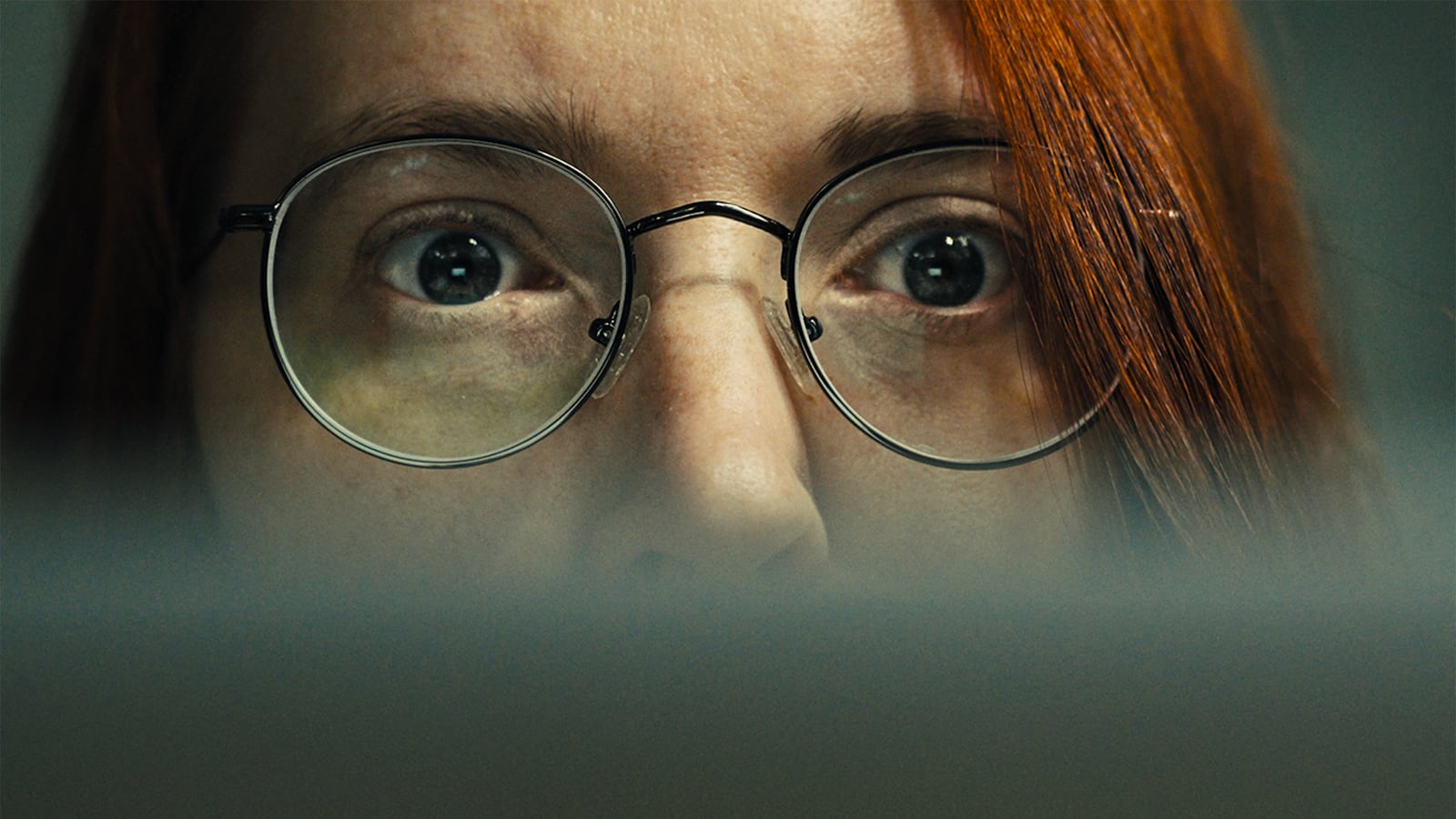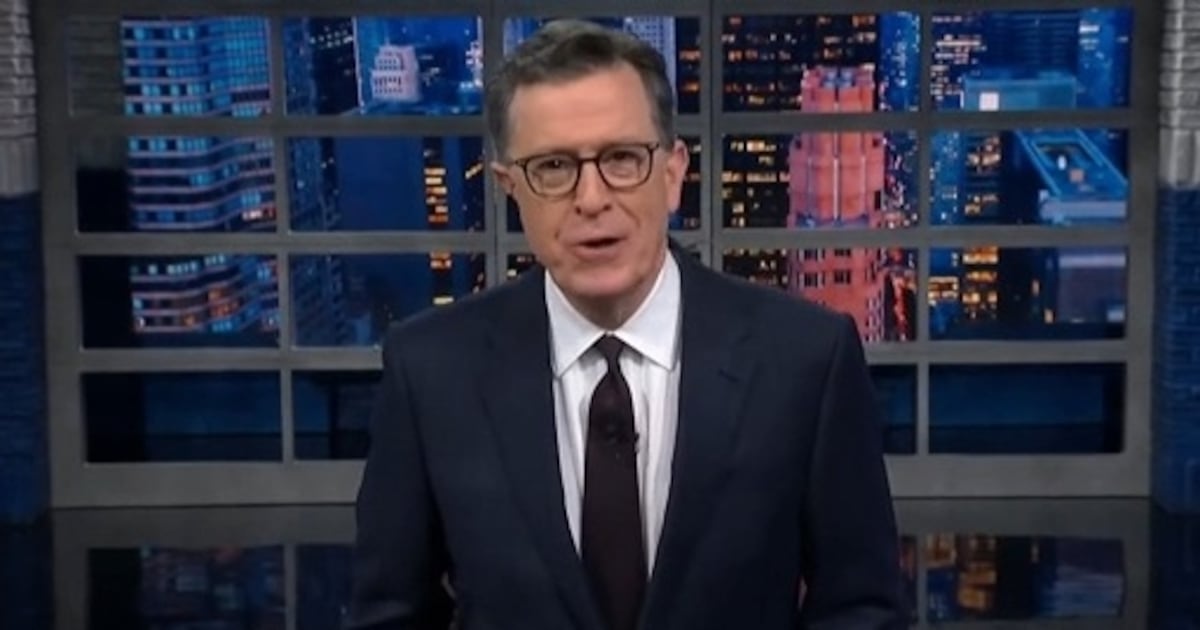The internet is a bottomless pit of intolerance and disinformation, and in Hacking Hate, Swedish investigative reporter My Vingren dives headfirst into the ugliness. Known as the “Girl With the Dragon Tattoo of Journalism” for her coverage of far-right extremism, Vingren is committed to unearthing and publicizing the myriad ways in which such malice flourishes online, and in Simon Klose’s documentary—premiering at this year’s Tribeca Film Festival—she employs her own duplicitous sleuthing methods to immerse herself in a world of neo-Nazi memes, antisemitic conspiracy theories, and rancid populist politics. What she finds is a morass of the worst of humanity and, also, a tech industry that seems perfectly comfortable profiting from it.
It’s not news that Twitter, Instagram, Facebook, and their social media ilk are platforms for noxious bigotry, and yet Hacking Hate provides a bracing insider’s look at the grossness that proliferates throughout these venues’ right-wing regions. To access those areas, Vingren has become something of a master of disguise. Using facial recognition software to alter her visage into various male and female forms, she creates a fictional virtual family of white supremacists: father Andreas, mother Johanna, and kids Svea and Ellie. Vingren concocts entire backstories for her avatars, the better to sell them as real, and by posting from their accounts with key nationalism-related hashtags, she swiftly attracts the attention of far-right users.
This process culminates with her first triumph: receiving an invite to join an exclusive group on Telegram (an instant messaging service) for the Nordic Federation, an outfit that recruits from Scandinavian countries and advocates for armed revolt in order to establish a for-whites-only Nazi Nordic region.

My Vingren is award-winning Swedish journalist in Hacking Hate.
Tribeca Film FestivalVingren first attained national prominence in 2018 when she won the Prix Europa prize for European Radio Investigation of the Year for her Swedish Radio report, “The Bombings, the Security Service, and the Nazis.” It also earned her the ire of right-wingers, who subsequently made her life a living hell and forced her to move to apartments where security professionals have safeguarded her windows against potential Molotov cocktail attacks. This is the price of shining a spotlight on the darkest corners of our 21st-century digital reality, and though she remains committed to her mission, she and her editor Anna Fröjd—both of them working for Expo, the anti-racist magazine founded in 1995 by The Girl with the Dragon Tattoo author Stieg Larsson—are well aware of the hazards involved with their efforts.
Vingren’s starting point for her latest feature is right-wing influencers, and she spends particular time on a blond-haired musclebound YouTuber known as The Golden One, who resembles a He-Man cosplayer and whose videos often involve shots of him doing pull-ups on bridges and tree branches. The Golden One talks a lot about fitness and healthy eating, but that harmless content is intermingled with diatribes about white power, so that he tells fans things like, “There are sub-humans of all races, to quote Joseph Goebbels.” Despite this type of rhetoric, including his proclamation that it’s OK to kill other humans (and if you think otherwise, you’ve been “brainwashed”), The Golden One knows that YouTube has community guidelines, and he cagily announces to subscribers that he can’t say some things outright, so “keep that in mind.”
The longer Vingren mires herself in this muck, the more she turns up an endless array of hateful memes, many of them rooted in anti-immigrant sentiment. She also finds herself fascinated by the Nordic Federation, and via canny online researching (much of it taking advantage of public databases), she deduces that the leader is a member who goes by the moniker Strength38—and who eventually reveals himself to be an American expat named Vincent. Through multiple channels, Vingren locates Vincent’s old neighbor, who recounts a series of hostile and strange incidents involving the influencer (complete with photos and security-cam videos as supporting evidence). Before long, she’s tracked Vincent to Russia, where he appears to be operating as a Russian agent—although as with so many things on theiInternet, Vincent’s true allegiances and motivations are hard to completely ascertain, no matter how many digital footprints he leaves.

Anika Collier Navaroli, the instrumental whistleblower at X.
Tribeca Film FestivalDuring the course of her reporting, Vingren speaks with Anika Collier Navaroli, a free speech lawyer who was part of the Safety Police Team at Twitter when then-President Donald Trump was booted off the platform, and whose warnings to management—at Twitter and, later, at Twitch—were downplayed if not outright ignored. More than Vincent’s ability to recruit young white men to his cause, it’s this aspect of Hacking Hate that most powerfully resonates. While she receives weak-sauce denials from Google’s Public Policy and Government Relations representative Sara Övreby, Vingren clearly understands that these companies are making money from right-wing hate content, and that they justify this by hiding behind free-speech absolutism stances. More upsetting still, as Center for Countering Digital Hate’s Imran Ahmed contends, such vitriol has escalated since Elon Musk purchased Twitter in 2022 and transformed it into X.
For those who use any of these sites, Hacking Hate’s onslaught of bile will feel less revelatory than familiar. What’s fascinating, however, are Vingren’s sneaky infiltration techniques, which speak to both her cunning and to the inherent unreliability of the online universe. That fact is forcefully underscored toward the conclusion of Klose’s film, when Vingren discovers that Vincent isn’t as easily pigeonholed as she initially assumed. First, she unearths a video of the hatemonger masturbating in the nude that he posted to a pornographic gay site. Then, via a conversation with a U.S. lawyer who has records of his several domestic violence and child custody lawsuits, she learns that he was once a DJ with a fondness for Caribbean music, and that his ex-girlfriends (and ex-wife) were all Black—and his kids are of mixed race.
The contradictions at the heart of Vincent are all related to his, and, by extension, his recruits’ desperate desire to find acceptance from a welcoming community. Hacking Hate is thus a portrait of not only viral viciousness and amoral profiteering, but of a world threatened by intertwined populations of lonely, resentful men.






